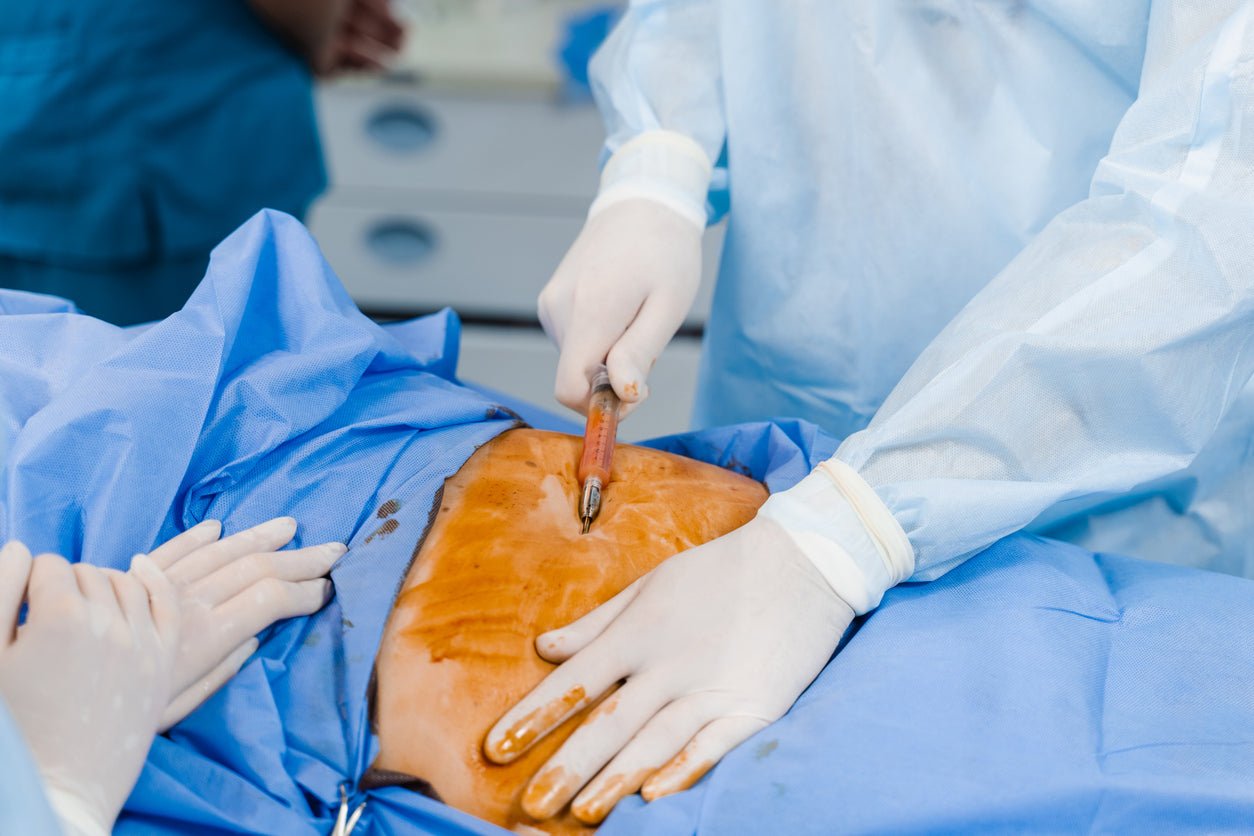Cosmetic surgery can be a transformative experience, enhancing one's appearance and boosting self-confidence. However, the prospect of scarring can be a concern for many individuals undergoing these procedures. Fortunately, with proper care and attention, scarring can be minimized, allowing patients to achieve optimal results. In this guide, we'll explore various strategies to reduce scarring after cosmetic surgery, from pre-operative preparation to post-operative care to address common concerns.
Preventing scarring after cosmetic surgery involves a combination of pre-operative preparation, careful post-operative care, and following your surgeon's instructions diligently. Here are some general tips:
- Follow your surgeon's instructions: Your surgeon will provide specific guidelines for wound care, including how to clean the incision site, what medications to take, and any activity restrictions.
- Keep the incision site clean: Clean the area around the incision gently with mild soap and water as instructed by your surgeon. Avoid harsh cleansers or scrubbing which could irritate the skin.
- Protect the incision from sun exposure: Sun exposure can cause scars to darken and become more noticeable. Use sunscreen with a high SPF and cover the incision area with clothing or a bandage if it's exposed to the sun.
- Avoid smoking: Smoking can impair healing and increase the risk of complications. If you smoke, try to quit before your surgery and avoid smoking during the recovery period.
- Eat a healthy diet: Proper nutrition is essential for wound healing. Eat a balanced diet rich in vitamins and minerals to support your body's healing process.
- Stay hydrated: Drink plenty of water to keep your skin hydrated, which can help prevent excessive scarring.
- Consider scar management products: Your surgeon may recommend using silicone gel sheets, creams, or other scar management products to help minimize scarring. These products can be applied once the incision has fully closed and healed.
- Attend follow-up appointments: Regular follow-up appointments with your surgeon allow them to monitor your healing progress and address any concerns promptly.
- Be patient: It takes time for scars to fade and mature. Be patient and give your body the time it needs to heal properly.
Remember, every individual's healing process is unique, and some scarring may be unavoidable depending on the type of surgery and your skin type. However, by following these tips and working closely with your surgeon, you can minimize the appearance of scars and achieve the best possible outcome from your cosmetic surgery.
Consider these scar management products:
Arnica Oil
Arnica oil is often used topically to help reduce bruising and inflammation associated with minor injuries, such as bumps and bruises. It contains compounds like helenalin, which have anti-inflammatory properties and may help alleviate pain and swelling.
Regarding scarring, there's limited scientific evidence to support the use of arnica oil specifically for reducing scars. However, some anecdotal reports suggest that applying arnica oil to scars may help minimize their appearance by reducing inflammation and promoting tissue regeneration.
It's important to note that while arnica oil is generally considered safe for topical use, some people may be allergic to it or experience skin irritation. It should not be applied to broken skin or open wounds.
If you're considering using arnica oil for bruising or scarring, it's a good idea to consult with a healthcare professional, especially if you have sensitive skin or any underlying medical conditions. They can provide guidance on its appropriate use and help you determine if it's suitable for your specific situation. Additionally, if you're using arnica oil for scarring, it's essential to be patient and consistent with application, as it may take time to see results.
Hyaluronic acid and aloe barbadensis
Both hyaluronic acid and aloe vera (Aloe barbadensis) are known for their potential benefits in wound healing and scar reduction, although their mechanisms of action and effectiveness may vary.
- Hyaluronic acid: Hyaluronic acid is a substance naturally found in the skin and connective tissues. It plays a crucial role in wound healing by promoting tissue repair and regeneration. When applied topically, hyaluronic acid can help keep the wound area moist, which creates an optimal environment for healing. It also has anti-inflammatory properties that may help reduce swelling and redness associated with scars. While hyaluronic acid alone may not directly reduce the appearance of scars, it can contribute to the overall healing process and potentially improve the final outcome.
- Aloe vera (Aloe barbadensis): Aloe vera has been used for centuries for its medicinal properties, including wound healing and scar reduction. It contains various bioactive compounds, such as polysaccharides, vitamins, minerals, and enzymes, which contribute to its anti-inflammatory, antimicrobial, and wound-healing effects. Aloe vera gel can help soothe and moisturize the skin, reduce inflammation, and stimulate cell regeneration, which may promote faster healing and minimize scar formation. Some studies suggest that aloe vera gel may be particularly beneficial for reducing the appearance of hypertrophic scars and keloids.
While both hyaluronic acid and aloe vera have potential benefits for scar reduction and wound healing, it's essential to use them properly and consistently for best results. Additionally, individual responses may vary, and not all scars will respond equally to these treatments. If you have concerns about scarring or wound healing, consult with a healthcare professional or dermatologist for personalized advice and treatment recommendations.
Tea
Several types of teas have anti-inflammatory properties that can help reduce inflammation in the body. Here are some examples:
- Green tea: Green tea contains polyphenols, particularly a catechin called epigallocatechin gallate (EGCG), which has potent anti-inflammatory effects. Regular consumption of green tea has been linked to reduced inflammation and may help alleviate conditions such as arthritis and inflammatory bowel disease.
- Turmeric tea: Turmeric contains curcumin, a compound with powerful anti-inflammatory and antioxidant properties. Drinking turmeric tea can help reduce inflammation in the body and may provide relief from conditions like arthritis, inflammatory bowel disease, and other inflammatory disorders.
- Ginger tea: Ginger contains gingerol, a bioactive compound with strong anti-inflammatory and antioxidant effects. Drinking ginger tea may help reduce inflammation, alleviate muscle pain, and ease symptoms of conditions like osteoarthritis and rheumatoid arthritis.
- Chamomile tea: Chamomile tea contains flavonoids with anti-inflammatory properties that can help reduce inflammation in the body. It is often used to alleviate symptoms of inflammatory conditions such as arthritis, gastrointestinal disorders, and skin inflammation.
- Rooibos tea: Rooibos tea is rich in antioxidants, including quercetin and aspalathin, which have anti-inflammatory properties. Drinking rooibos tea may help reduce inflammation and oxidative stress in the body, potentially benefiting overall health and well-being.
- Peppermint tea: Peppermint tea contains menthol, a compound with anti-inflammatory and analgesic properties that can help alleviate inflammation and pain in conditions like irritable bowel syndrome (IBS) and headaches.
Incorporating these teas into your daily routine as part of a balanced diet and healthy lifestyle may help reduce inflammation and promote overall health. However, it's essential to remember that while tea can be beneficial, it's not a substitute for medical treatment.
Conclusion:
Minimizing scarring after cosmetic surgery requires a proactive approach, from pre-operative preparation to diligent post-operative care. By following your surgeon's instructions, maintaining a healthy lifestyle, and utilizing scar management techniques, you can enhance the healing process and achieve optimal results. Remember, patience is key, as scars take time to fade and mature. With proper care and attention, you can enjoy the benefits of cosmetic surgery with minimal scarring.










